‘Heartbreaking’: Singer Tina Arena reveals teenage son left Australia because he ‘didn’t cope’ during lockdown
She has made headlines for her comments about lockdown, and now pop icon Tina Arena has revealed her teenage son left the country for Paris three years ago.
Stellar
Don't miss out on the headlines from Stellar. Followed categories will be added to My News.
In the 30 years since Tina Arena stormed the global charts with her hit song ‘Chains’, the powerhouse singer has become a vocal force to be reckoned with and one of the most successful Australian artists of all time.
On the eve of a tour revisiting her 1994 album Don’t Ask, Arena sits down with the Stellar podcast Something To Talk About for a frank conversation about past triumphs, parental shortcomings and speaking out.
Stellar: In many ways, the Tina Arena we know today – one of the most beloved entertainers in the country – got her start with Don’t Ask, the 1994 album that turns 30 next month. What are your memories of that time?
Tina Arena: Well, I was considerably younger so I perhaps wasn’t as cynical as I am now. There was a structure around music that was a lot better than what it is today. It gave artists an opportunity to present their works, and to be able to go on some sort of an adventure with their artistic careers, their performing and their writing, the creating of records. I really think that was a time where music was really valued. People weren’t having music rammed down their throats, so it enabled [them] to have the opportunity to really immerse themselves in an artist’s journey. So it was a beautiful time. It was a crazy time.
Listen to the full interview with Tina Arena on the Stellar podcast, Something To Talk About:
Stellar: You became a child star at the age of eight when you were on Young Talent Time and became known as “Tiny Tina” for several years (Arena was the longest-serving cast member on the weekly variety show, appearing from 1976 to 1983). You were in your 20s when Don’t Ask, your second solo album, was released. The transition from child star to establishing a career as an adult is a notoriously difficult one. Tell me about the interim decade between Young Talent Time and the album.
Tina Arena: It was rough, because I was really feisty and pretty outspoken by that stage. When you grow up as a little kid on TV and you’re constantly told what to do, it’s very easy to lose. It’s a form of programmation. You just take on board what everybody says and then it’s very difficult to be able to grow and learn about setting boundaries for yourself. You leave yourself open for massive attack, which I did. I was bullied because I was Italian, because I wasn’t blonde and didn’t fit the mould. I struggled a lot, but I fought through it.
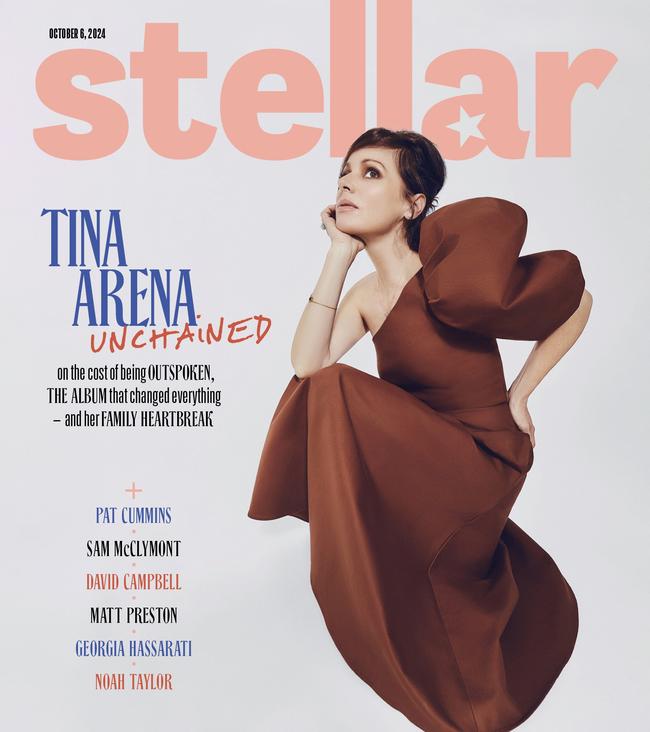
Stellar: The first single from Don’t Ask was ‘Chains’, which was a huge hit. And then the singles kept coming, with the album on the charts for well over a year. How did you feel as that was unfolding?
Tina Arena: I was surprised by the reaction, only because I’d been programmed to not really believe that I was capable of making that transition. Everyone was like, “Well, she’s a Young Talent Time-r. She’s not going to be able to transcend from a child star into an adult.” I surprised myself, in a way. I remember being unbelievably humbled – and shocked. I didn’t expect it. I knew the record was a really honourable piece of work that was a depiction of where I emotionally was at that point in time. The record deserved it. I do believe that.
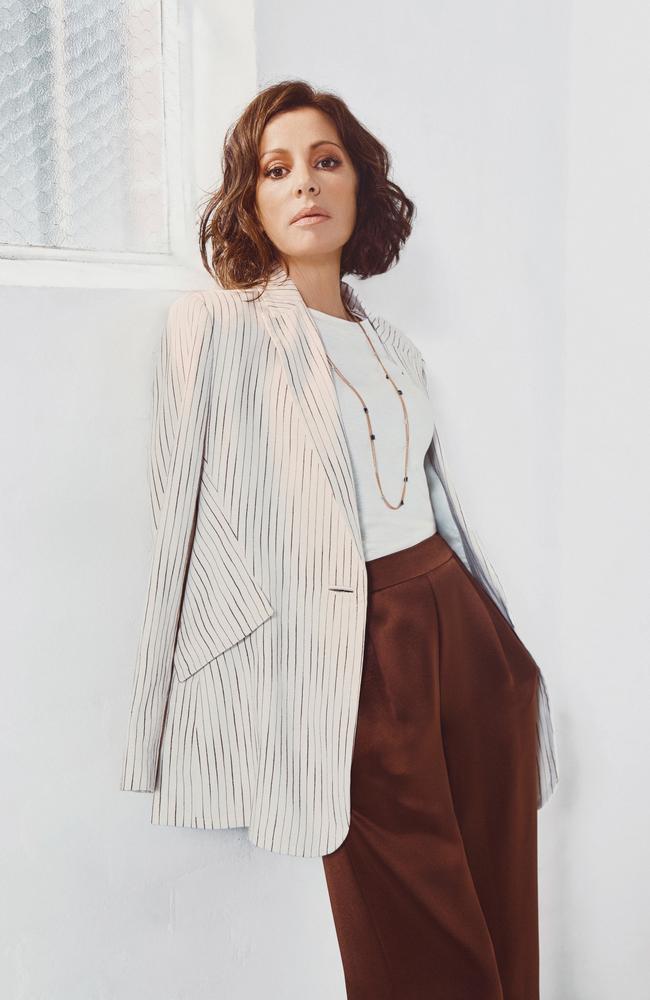
As you prepare to tour the album next month (Arena and US singer Richard Marx will co-headline four concerts across Australia from November 23), I imagine revisiting certain songs at the age of 56, having experienced the many highs and lows of life, means they take on a new meaning than when you first performed them three decades ago?
I think what I learnt 30 years on is that I was a bit ahead of my time. I think I had an emotional maturity at 24 that doesn’t really exist in many 24-year-olds today, only because they have so many distractions. Therefore, it’s much more difficult for them to hone in on something. We didn’t have those, so those songs were created from a really profound, emotional place. They were things I was going through. ‘Sorrento Moon’, a reflection of my childhood, sitting on the beach in Sorrento, watching the surfy boys, watching the girls interact, remembering how beautiful that time was … ‘Chains’ was absolute frustration,
a manifestation of knowing that I was going to go on one hell of a journey. And I did. I went on a hell of a journey, and I was in chains. So, it became almost literal. All those songs – they’re very real emotions that I was experiencing at that time, just putting my heart down and going, well, it is what it is. You know, ‘Sorrento Moon’, when the record company first heard that, they sort of went, “What the f*ck is that?” It doesn’t fit into anything we’re musically doing at the moment; you can’t do that.” I said, “I can do what I want, thank you.”
You’ve never been one to hold back from sharing your opinion. You ignited a national conversation with an interview with Stellar in early 2020 where you spoke out about lack of support for the arts community amid the pandemic. When you were inducted into the ARIA Hall of Fame in 2015, you called out commercial radio for not playing so-called “older” female artists. These are moments where some might think, I’m just going to have a good night, have a glass of champagne and bask in the moment.
I wish I was better at that, but anyway. Continue.
Do you, though? Where does this come from? Have you always been outspoken?
When you grow up in the industry, you’re subjected to things really early on. So you start putting two and two together. I don’t know what kind of karma I have, what kind of past life I have. I may have been burnt at the stake. There are times where I’ve felt that very seriously around some people that I feel haven’t had the right intentions or perhaps didn’t say the right
thing. I’m a very keen observer. I study people, and their behaviour gives me the answers that I need. I also spent many years not listening to myself and listening to others and as a result of that, I lost my way. I lost who I was. Self-expression is about you: what you inherently feel, think, desire. And I can’t be anything but truthful. I’m comfortable in the notion of agreeing to disagree, and that’s something Australians don’t do very well. But I lived in France for a long time and there are a lot of people that agree to disagree. I’ve had some extraordinary conversations over the last few years that I think have probably been a massive contribution to the woman I am today because I was out of my comfort zone.
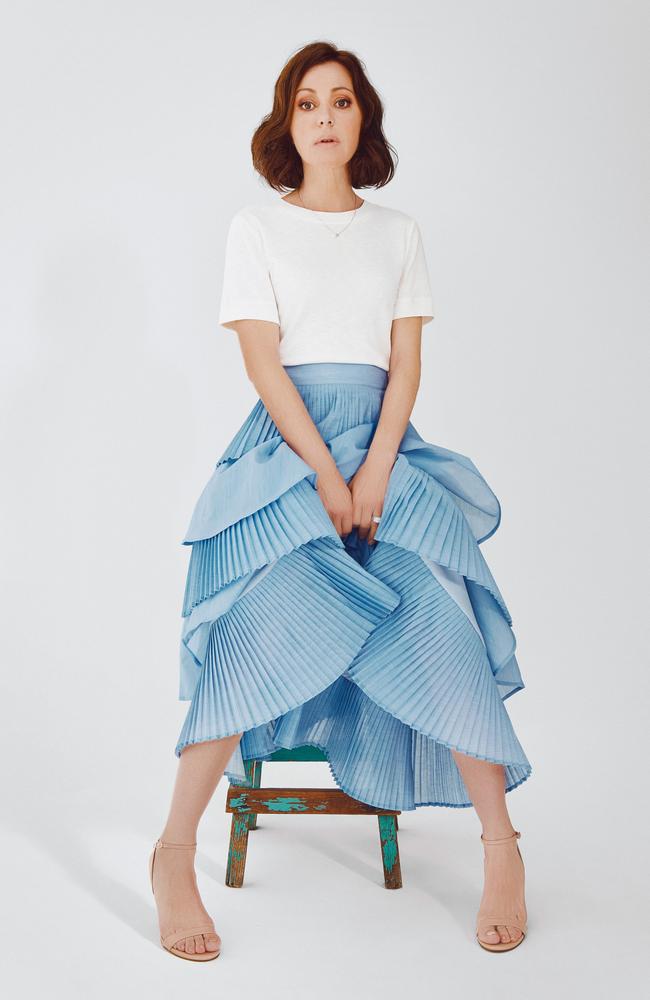
Speaking out can make you a target, especially as a woman. You said you believe you were possibly burnt at the stake in a past life – arguably we as a society still like to burn women at the stake in 2024.
We do, and it’s really sad. I was hoping that as women we’d be able to somehow evolve a bit more graciously, as opposed to: let’s fight. Things can be solved much more beautifully and gently than that. It’s unbelievably important to support other women in a very honourable way, even if you don’t agree with them. I’m a woman who’s had many people attack me over the years because I speak my mind. And it’s like, “If you want to cancel me, knock yourself out.” Is it going to change my life? Probably not spiritually anymore, because I’m learning to protect myself.
Do you think the industry has improved in terms of the way that high-profile women get pitted against one another?
I’ll be honest, I’ve been in several situations over the years, and particularly in the ’90s, where I met some very successful women internationally – I will not mention their names – where I felt really uncomfortable because of that notion that we were being pitted against one another. It’s such bullsh*t. It’s so boring. It’s a storyline that makes no sense. Nobody gets anything from it. What I’ve struggled with a lot is those really boring narratives when someone goes, “Oh, I’ve got a really great idea – what do you think?” And it’s actually not a great idea at all. It’s just that you think it’s a great idea. It’s not interesting for anybody.
Listen to the full interview with Tina Arena on Something To Talk About:
You moved to France in the late 1990s and lived there for a decade before returning home. What’s your life like in Australia these days, being closer to your family in Melbourne with your son, Gabriel, who turns 19 next month?
Well, my son isn’t with me. My son lives in Paris. He’s been there for the last three years. Gabriel ultimately decided to leave Victoria during lockdown because, like many young children, he didn’t cope being locked up at home. None of us did. We were supposed to put up and shut up. I still struggle with that, and that’s why I was also very vocal. It was a heartbreaking time for the family because the family fell apart. Gabriel’s father [French artist Vincent Mancini] and I split up nearly five years ago, and that’s fine. We’re all fine now, thank God, but it was brutal. So when your only child decides to leave because he needs to be able to walk the streets and have a sense of freedom and be a young boy and learn, it made me really angry with the state, with Australia and them being so compliant.
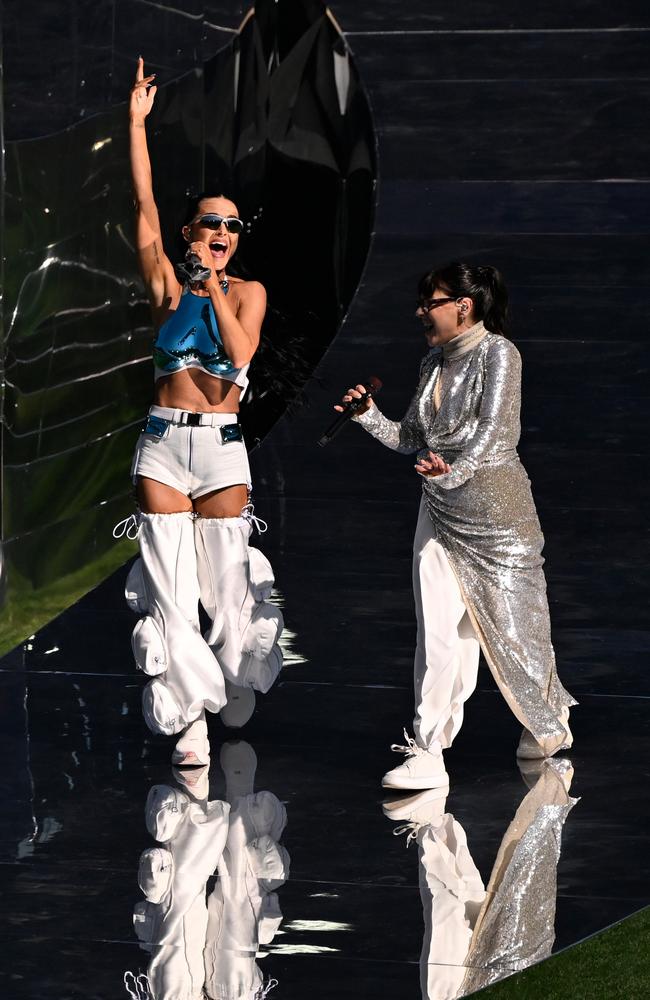
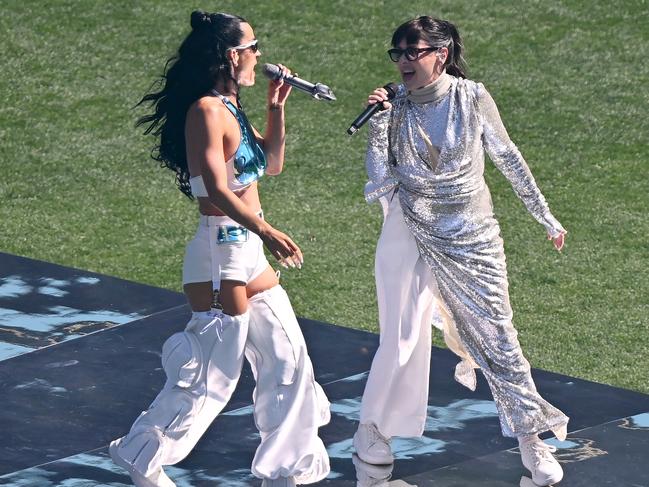
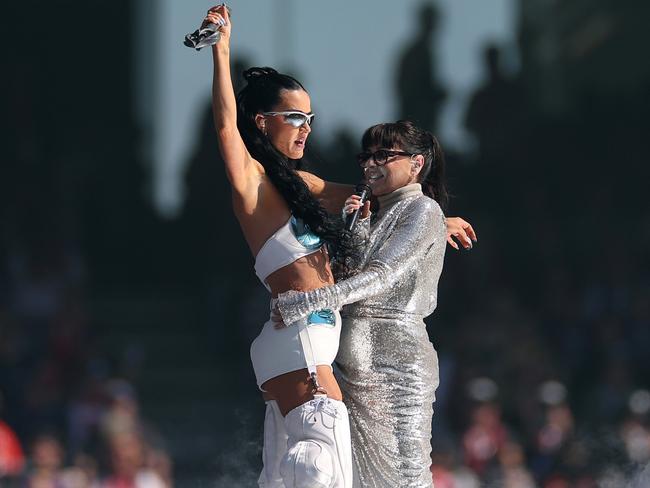
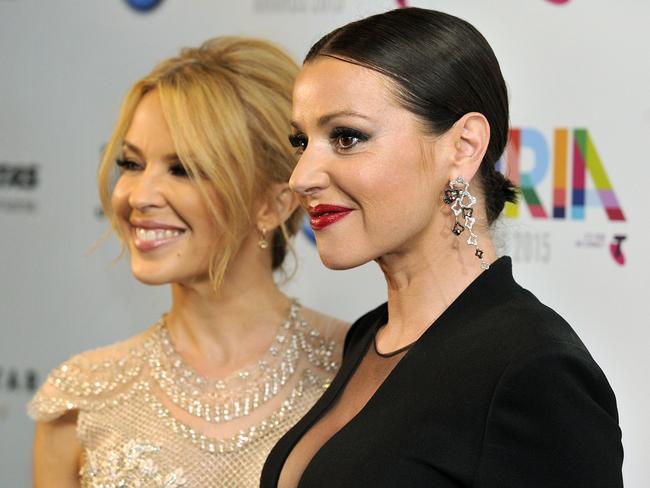
I’m quite traumatised by it. I ended up going to therapy, and I’m very comfortable in saying that I have therapy on a regular basis. Because I was very unhappy. I got very sick last year [with a kidney infection] and ended up in hospital, had to cancel a tour. I really do believe that’s a manifestation of the trauma that happened in 2020, 2021 and 2022 … I’ve had to slowly work my way through it with the love of my friends and family. It’s not over. Some days are really great and some days are tough, but I’m doing much better. Perhaps I’ve done my head in a lot more than I should have, but I think I’ve grown a lot and I’m much more peaceful with it now and I’m happy to say that my relationship with my son is getting better by the day. And that’s good because we really did struggle as mother and son for a couple of years. He was very angry and, as a parent, we don’t have a guidebook telling us what to do. So I navigated that through unadulterated honesty with Gabriel. I have expressed strengths to him, and I have expressed my failures. And I’m very happy because I think my son has sort of understood and gone “Well, you know, at least Mum doesn’t sit there and pretend she’s got the answer to everything. She’s only human. She does great things and sometimes she’s a dickhead.”
Listen to the full interview with Tina Arena on Something To Talk About:
Thank you for sharing that. I’m really sorry you’ve had such a challenging few years, but I think you opening up about that is going to make a lot of people feel less alone. And, as you say, parents don’t get a handbook.
No, we don’t. Parenting experts often say it’s a real gift for us as parents to admit to our children that we’re figuring this all out, too – that we’re not perfect. It’s not easy. But it’s
important people understand that it doesn’t matter what you do as a job, what kind of life you’ve had. I don’t want to share everything because it’s not anybody’s business. You know, I don’t care to really know everything about other people. What I do know is that they’re human and are constantly juggling things. But I do believe in being truthful and saying there were really difficult times. It’s part of life, and if I can transcend that and turn it around, that’s when I’m winning. And I think I’m winning now because I am turning it around, and I’m grateful for that.
The Tina Arena and Richard Marx Don’t Ask … Again tour features guests Daryl Braithwaite, Kate Ceberano, Southern Sons and 1927; visit facetofacetouring.com.au. A remix of ‘Chains’ by Arena and electronic duo Shouse is out now.
Listen to the full interview with Tina Arena on the latest episode of Something To Talk About and read it inside the latest issue of Stellar, via The Sunday Telegraph (NSW), Sunday Herald Sun (VIC), The Sunday Mail (QLD) and Sunday Mail (SA). For more from Stellar, click here.
More Coverage
Originally published as ‘Heartbreaking’: Singer Tina Arena reveals teenage son left Australia because he ‘didn’t cope’ during lockdown




